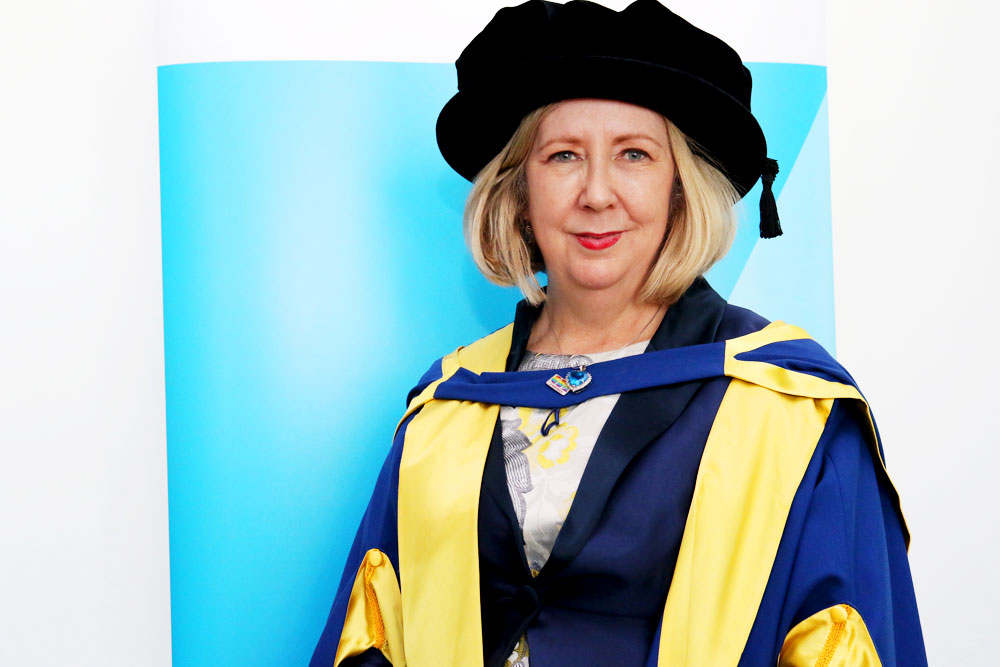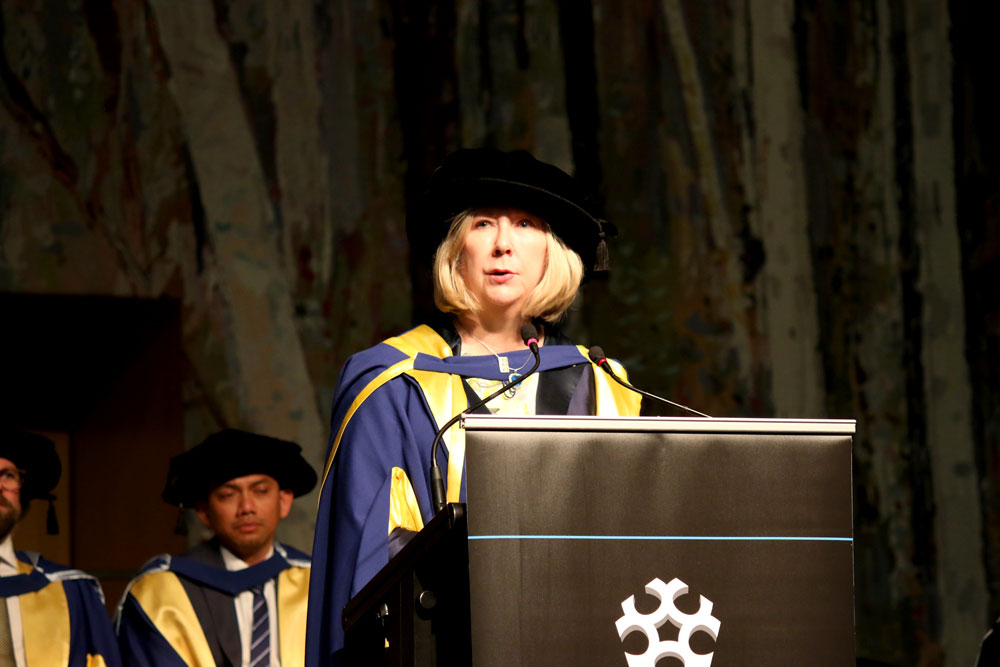Amanda Jones
29 September 2017: Growing up in Western Sydney and living next door to Vietnamese and Lebanese refugees, Helen Watchirs witnessed first-hand how people could be treated unfairly.
The youngest of six children and the first in her family to go to university, she saw education as “a ladder of opportunity” and studied arts and law before completing a Doctor of Philosophy in 2002, focusing on HIV/AIDS and human rights issues.
A leader in the Canberra community, her advocacy over the past 35 years has resulted in improved anti-terrorism, discrimination, mental health, guardianship, tenancy, and criminal legislation.
Dr Watchirs was appointed ACT Human Rights Commissioner in 2004 (formerly titled Discrimination Commissioner) and became President in 2016. During this time, she managed the handling of more than 1,000 discrimination, vilification and sexual harassment complaints.
Her role as a community leader and her dedication to improving human rights and ending discrimination will be recognised with an honorary doctorate from the University of Canberra on Thursday.
“It’s a great honour and privilege to receive an honorary doctorate from the University of Canberra,” Dr Watchirs said.
“I’m proud of the connection I have with the University having been appointed an adjunct professor last year. University of Canberra graduates have been particularly valued at the commission.”
Dr Watchirs is a regular speaker at the University and is working with the Faculty of Business, Government and Law, looking at the treatment and experiences of women in prison.
Following the unexpected loss of her husband, Supreme Court judge and former Attorney-General Terence Connolly in 2007, Dr Watchirs became a passionate advocate for organ and tissue donation.
In 2015 she was awarded the ACT Chief Minister’s Gift of Life Award for Organ and Tissue Donation Awareness, Policy Advocacy and Support.
She was also named the Telstra ACT Business Woman of the Year for Community and Government sector in 2012, received an Order of Australia Medal for her service to the advancement of human rights in 2010, and was an ACT finalist for Australian of the Year in 2016.
While Dr Watchirs is pleased with the progress that’s been made in the protection of human rights at both a local and national level, she said there is still more to do.
“Certainly, at the national level there is need for debate about marriage equality but it needs to be civilised, not protracted or divisive,” she said.
“I’m really keen for the debate to be respectful. Some people won’t be civil, but people do have the right to an opinion. However, care needs to be taken in the public expression of opinions under anti-vilification laws so they are not contemptuous or offensive to others.
“On the international stage, Australia doesn’t have a good record when it comes to the unequal treatment of Aboriginal people, refugees and asylum seekers,” Dr Watchirs said.
They are battles she will continue to fight and in her occasional address she will encourage the University’s newest graduates to find their own passion and pursue it.
“There are no wrong paths to explore. Just remember to be true to yourself and to stand up for your own and other people’s rights,” she said.
Read more coverage from the University of Canberra's most recent round of graduations:
Tired minds limit sports ability: UC research
Vitamin B key to reducing likelihood of Alzheimer's disease
Gender equality advocate chalks up another victory




